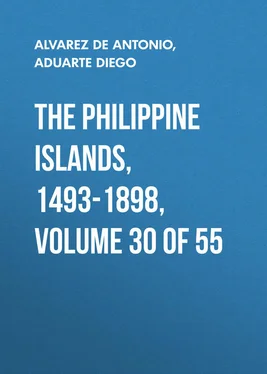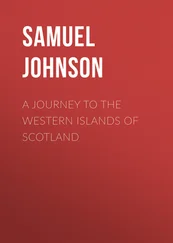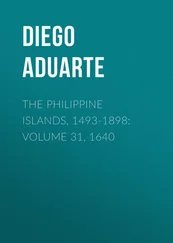Antonio Alvarez de Abreu - The Philippine Islands, 1493-1898, Volume 30 of 55
Здесь есть возможность читать онлайн «Antonio Alvarez de Abreu - The Philippine Islands, 1493-1898, Volume 30 of 55» — ознакомительный отрывок электронной книги совершенно бесплатно, а после прочтения отрывка купить полную версию. В некоторых случаях можно слушать аудио, скачать через торрент в формате fb2 и присутствует краткое содержание. Жанр: foreign_antique, foreign_prose, Историческая проза, на английском языке. Описание произведения, (предисловие) а так же отзывы посетителей доступны на портале библиотеки ЛибКат.
- Название:The Philippine Islands, 1493-1898, Volume 30 of 55
- Автор:
- Жанр:
- Год:неизвестен
- ISBN:нет данных
- Рейтинг книги:4 / 5. Голосов: 1
-
Избранное:Добавить в избранное
- Отзывы:
-
Ваша оценка:
- 80
- 1
- 2
- 3
- 4
- 5
The Philippine Islands, 1493-1898, Volume 30 of 55: краткое содержание, описание и аннотация
Предлагаем к чтению аннотацию, описание, краткое содержание или предисловие (зависит от того, что написал сам автор книги «The Philippine Islands, 1493-1898, Volume 30 of 55»). Если вы не нашли необходимую информацию о книге — напишите в комментариях, мы постараемся отыскать её.
The Philippine Islands, 1493-1898, Volume 30 of 55 — читать онлайн ознакомительный отрывок
Ниже представлен текст книги, разбитый по страницам. Система сохранения места последней прочитанной страницы, позволяет с удобством читать онлайн бесплатно книгу «The Philippine Islands, 1493-1898, Volume 30 of 55», без необходимости каждый раз заново искать на чём Вы остановились. Поставьте закладку, и сможете в любой момент перейти на страницу, на которой закончили чтение.
Интервал:
Закладка:
The third fundamental reason is, that the Philipinas defend the islands of Moluco, and the commerce in the cloves that are obtained from them. The importance of these islands is everywhere known, because in all the world there are no other islands nor any other region in which grows this spice or drug, so highly valued. For their discovery alone Hernando de Magallanes made, by order of the emperor Carlos Fifth, that celebrated voyage in which he found the strait to which he gave his name, and passed through it into the Southern Sea; and, although he was slain while making his claims, his ship sailed around the world. The lordship of those islands caused troublesome hostilities between the Castilians and Portuguese, which were ended by this crown giving them to that of Portugal, in fulfilment of a contract; for it seemed (and indeed was evident) that Castilla would have much difficulty in maintaining them when they were so separated from all its kingdoms and states, while Portugal, by possessing Eastern India, was less distant from and could better support them. The course of time showed that even India was very remote from them; for when the Dutch power entered the Orient and established a military post in Bantan 3 3 According to Crawfurd (Dict. Ind. Islands, p. 38) this is the form, in the native languages, of the name that Europeans write Bantam, applied to the extreme western province of Java, and to an important seaport town in its northwest extremity. Most of the inhabitants of this province are Sundas, but along the coasts there is considerable intermixture with Javanese and other Malayan peoples. The port of Bantan was an important commercial center long before the arrival there of Europeans.
– a port nearer to Moluco, and more advantageously located than was India – it was so obviously impossible to defend them that in the end they were lost to us, the enemy getting possession of them all and of their commerce. But as the Philipinas were by that time quite populous, and so near to the Molucas that they were superior to Bantan [as a trading post], the task of restoring the Molucas [to Spanish control] was laid upon the governor, Don Diego de Acuña – who with his courage and energy, and the convenience of being so near, regained them and restored them to this crown. When both Castilla and Portugal recognized the great expense that India would have to incur in maintaining the Molucas, and that even with excessive expenditures it would be impossible to do so, on account of the injury being nearer than the remedy, and the enemy than the succor, those islands were, by the mutual agreement of the two crowns, united to the government of the Philipinas as regards their defense and support. The clove-trade was left to the Portuguese, because it was so important that, if it were taken from them, India would perish, or become greatly weakened. It is thus sufficiently proved that the Philipinas contributed to the restoration of all the forts in the Orient; and that in their preservation was and still is involved that of the Molucas, and consequently of all India. Thus they have been maintained since the year 1603, defending them by force of arms against the Dutch, who never cease their endeavors to expel the Castilians from those islands; this has been the cause of many naval encounters and battles, in which the arms of España have always remained victorious. Nevertheless, since the military force of Philipinas is small, the territory that they must defend large, and the aid which is given to them for this purpose very limited, it has not been possible to prevent the treachery and persistence of the Dutch from having some effect; nor to put a stop to their sharing in the clove trade at some forts which they keep in the Molucas, though at the cost of many men, armed vessels, and expenses. From all of these islands are produced each year 2,816,000 libras of cloves, of which the Dutch secure 1,098,000 libras, and the Portuguese and Castilians 1,718,000 – and this latter supply is due to the protection of the Philipinas; while it is computed that the cloves which the Dutch carry away amount to three times as much as it will cost them to be absolute lords of the Molucas, even with the large garrisons and armed fleets which they keep and maintain for purchasing the spice and transporting it to Bantan. From this it obviously follows that without the Philipinas the Molucas would be lost, and their commerce and trade in cloves would cease – from which would follow two pernicious results, which would cause the loss of whatever his Majesty possesses in the Orient. One is, that India would be greatly weakened, for lack of that commerce; for if that country languishes on account of not having all of that trade, it may well be understood that she will perish if it be taken from her. The other is, that the Dutch in that case would have the entire benefit of the trade, and without much expense; for if [Holanda] with less than half the trade – and that at the cost of so many garrisons and fleets – gains such profits that they are enough to maintain whatever she has in India; if she were to secure all the cloves and, on account of the less cost, thus gain a profit of more than a thousand per cent upon her investments, while the gross amount would be doubled: it is very plain that India would not remain safe, the Western Indias would be more effectively harassed, the rebel states in Flandes would be strengthened, the coasts of España would experience their invasions, and everywhere the treasure that could be obtained from the Molucas alone would cause most injurious effects – as may be seen, with more detailed arguments, in the memorial that I have cited in behalf of the Philipinas, to which [colony] we owe the only compensation [that we receive] for all these losses.
The fourth reason is almost the sequence of what has been said in the third, although it is more general, since it takes notice that the Dutch fleets have entered the Orient with so strong a force that they have often placed India in risk of being lost to us; for if they were aided by the Moorish and heathen kings and the rulers of Persa and Mogòr 4 4 i. e., Hindostan (see VOL. XVII, p. 252). The grave accent is here used in the word Mogòr, simply as following the usage of the Extracto, which throughout prints the grave instead of the acute accent.
– and sometimes the Dutch are leagued with the English, who also navigate those seas – their invasion would be irresistible. What has prevented this danger has been the diversion furnished by the Philipinas – not only by diminishing their trade and profits in Moluco (as has been seen), in China, and in other regions, but by compelling them to divide their forces, and to maintain in some places very large ones. India is divided into two parts – [one], from the Cape of Buena Esperanza to the Straits of Sincapura; the other, from the straits to China and Japòn. The first is defended by the Portuguese fleets of India, which seldom go thither through the straits; the second, by the Castilians of Philipinas, who never come here by way of the straits. For both these, it is necessary that the Dutch send thither and maintain squadrons; and therefore it is proved, at this very beginning, that if the fleets of this crown are deficient in either of those regions, and the enemy can transfer all of his naval force to the one that remains [without defense] because there is no diversion [of his forces] in the other, it will be difficult if not impossible to defend [the one to which he goes] – an argument which admits no debate in the naval as well as in the military world. From this it follows that if now the Philipinas fail us Eastern India will remain without aid, and consequently in evident danger of being lost [to us]. This is further confirmed by the fact that, of the two parts into which India is divided, the enemy expends much more of his energy in the second than in the first. In the latter he is content with factories and barter, without keeping any fortified posts; in the former, he maintains the forts of Malayo, Toloco, Tacubo, Malaca, Tacome, Marieco, Motir, Nofagia, Tafacen, Tabelole, Bermevelt, Tabori, Gilolo, Amboino, Lagu, Maruco, Mozovia, Belgio, Bantan, and Hermosa Island. In these nineteen presidios there were, in the year 1616, 3,000 soldiers; 193 pieces of bronze artillery and 310 of iron, and 300 stone-mortars [pedreros]; and thirty war galleons. And all this is solely to defend themselves from the Philipinas, and to attack the islands so that the armed fleets of India shall not sail to that region – or, if they should go thither, it would be easy to stop them at the Strait of Sincapura. If then, the Philipinas were unable to act, and the Dutch should abandon those nineteen forts (which now are many more), as being no longer necessary to them, they would proceed to the coasts of India, and their galleons to those seas. If even when their energies are diverted, their forces divided, and their gains diminished as they are now, they cause so much anxiety, what would it be if, with little if any opposition, their forces united, and their profits increased, they should harass India? It is easy to see that they would occasion that region the utmost distress, and that consequently the Philipinas are an absolutely necessary defense for it.
Интервал:
Закладка:
Похожие книги на «The Philippine Islands, 1493-1898, Volume 30 of 55»
Представляем Вашему вниманию похожие книги на «The Philippine Islands, 1493-1898, Volume 30 of 55» списком для выбора. Мы отобрали схожую по названию и смыслу литературу в надежде предоставить читателям больше вариантов отыскать новые, интересные, ещё непрочитанные произведения.
Обсуждение, отзывы о книге «The Philippine Islands, 1493-1898, Volume 30 of 55» и просто собственные мнения читателей. Оставьте ваши комментарии, напишите, что Вы думаете о произведении, его смысле или главных героях. Укажите что конкретно понравилось, а что нет, и почему Вы так считаете.












